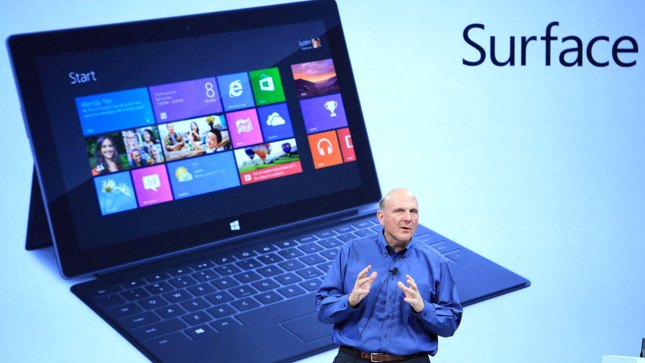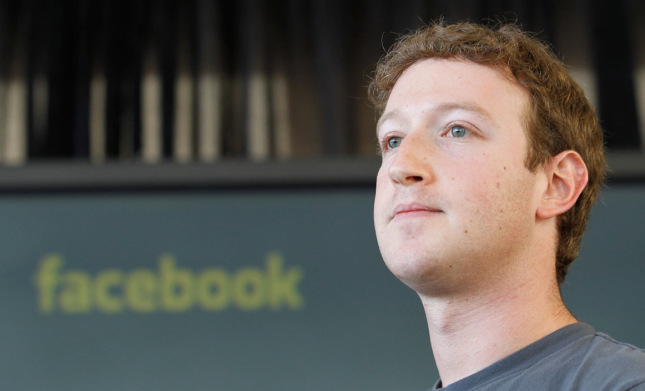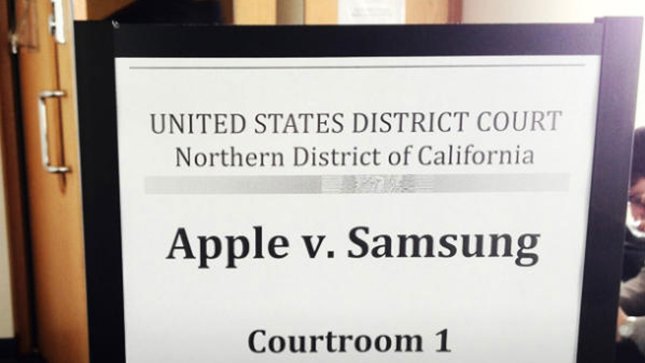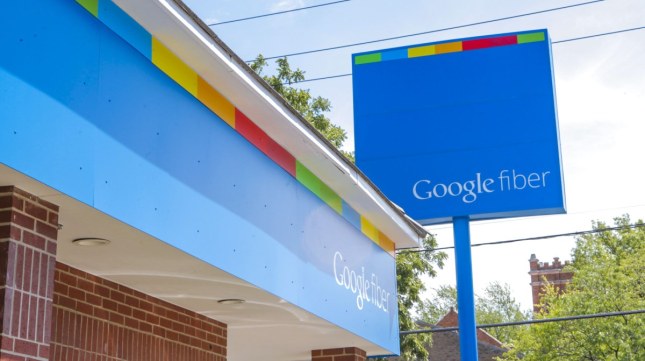The best thing about covering technology is that it’s never dull. As an ever-changing field, the danger for journalists lies not in getting bored with the beat, but in falling behind the rapid developments.
I’d argue this is one area where year-end lists are actually vital; with so much happening on a daily basis, it’s important to step back and take stock of it all. It’s a good opportunity to digest everything that has happened, so that we can figure out what it all means.
In that vein, here are the 10 events or ongoing technology stories that I thought were important in 2012:
10. Apocalypse Not Now
This one is more of a science story than a technology trend, but since all tech is rooted in science, it seems very relevant. In 2012, the Mayan-forecasted apocalypse that was supposed to happen on Dec. 21 came and went without so much as a sneeze. That followed two predictions of the Rapture last year by religious nut Harold Camping, who this year apologized for his faulty forecasts. With the discrediting of this sort of nonsense, perhaps further nutjobs will STFU and allow the world to get on with reality. Or at least study the things that may actually wipe us out, as the new Cambridge Project for Existential Risk plans to do.
9. Microsoft Rebounds - or Does It?
Microsoft had a weird 2012. The year started off hot, with the tech press suitably impressed by all the things the company was cooking up. Windows 8 was looking pretty sexy on phones, computers and tablets, to the point where the company was being considered “cool” again. But then it came to actually launching all that stuff, and well, things haven’t gone as well as the company had hoped. Windows 8 looks to be flopping on both computers and tablets, yet the Nokia 920 flagship Windows Phone 8 device is apparently doing surprisingly well. Microsoft’s traditional core audience - businesses that buy Windows computers - is notoriously slow at upgrading machines, so there could be some good news ahead for the company on that front in 2013. But with the way-overpriced $1,000 Surface Pro announced for January, the future doesn’t look any brighter in tablets. In the end, Microsoft hasn’t quite been able to capitalize on the hype it generated in 2012. Next year may very well make or break the company.
8. Robot Cars Allowed
It was a huge year for robot cars, with both Nevada and California making them street legal. Self-driving vehicles like the ones being developed by Google are thus on the fast track to becoming a reality, which is good for a number of reasons. For one, they are likely to cut down on congestion if deployed in mass numbers. They will also likely free people from the burden of ownership. Most importantly, they’ll save lives. That’s sure to be a contentious argument, since many humans take pride in their driving, but in actuality there are few things flesh-and-blood organisms do worse. Gun deaths may have captured the headlines this year, but far more people (including children) die every day of car-related causes in the United States - nearly 100 a day. Indeed, traffic accidents make the World Health Organization’s top 10 leading causes of death globally. Robot cars can’t get here soon enough.
7. Apple Loses Its Way
By now, everyone knows about Mapgate, the uncharacteristic misstep by Apple wherein Google’s mapping data was replaced on iPhones, iPads and iPods with a new, proprietary app. Users who updated to the new operating system saw their Google Maps nuked with Apple Maps, which was riddled with errors and generally not as good as Google’s offering. When word got out, many held off on updating their device software, opting instead to hope and pray that Google would release its own map, which the company did in December. Heads rolled at Apple, with several senior executives and managers shown the door, while Google was welcomed as the heroic liberator. Heading into 2013, CEO Tim Cook has a fire under him to salvage Apple Maps and erase the rare black eye the company received in 2012.
6. Ebooks Squabble
Speaking of Apple, the company was also at the heart of landmark ebook cases in both the United States and Europe. In both situations, Apple had convinced major book publishers to go with an “agency model,” which would let them set their own prices on ebooks (as in raise prices on ebooks). Normally, retailers get to decide how much they sell books for, but the publishers were down with the plan because they were worried about Amazon’s growing power and the company’s penchant for selling ebooks at low prices. Antitrust regulators on both sides of the pond, however, saw things differently and took Apple and the publishers to task. Since it’s never smart to fight the government in court, just about all of the involved parties have settled, with Penguin being the most recent. Amazon is now free to set whatever prices it likes, with Apple and MacMillan remaining the lone holdouts heading into the new year.
5. Rebels and Trouble Makers
The technology world has always been full of colourful individuals; something about using tech as a means to getting rich does tend to attract a certain crowd. This past year had no shortage of the weird and wacky. First there was Julian Assange, who spent a good portion of the year hiding out in the Ecuadorean embassy in London as a way of avoiding an arrest warrant. The WikiLeaks founder is wanted on sexual assault charges in Sweden and he’s worried (probably correctly) that the U.S. government is after him for spilling so many of its secrets - something he has promised to keep doing in 2013. Then there was the always-black-clad Kim Dotcom, the file-sharing kingpin who was the subject of a military-style-raid by New Zealand authorities. Dotcom spent most of the year battling extradition efforts to the United States, where he could serve 20 years in prison for running his Megaupload service, but so far, he’s managed to beat - or least stave off - the rap. He’s also planning to launch a new and improved file-sharing service, Mega, in January. And then there was John McAfee, the founder of the eponymous anti-company who was accused of murdering his neighbour in Belize. McAfee fled the country and hung out with a Vice reporter in Guatemala, only to get nailed because the reporter foolishly forgot to erase geo-data from the photos he was posting. He’s since been deported to the United States, where the crazy saga will undoubtedly continue in 2013.
4. The Rise (or Fall?) of Facebook
It would be hard to name a bigger cock-up of a tech company’s initial public offering than the one Facebook saw in 2012. From glitches on the Nasdaq that prevented trading to impropriety at top underwriter Morgan Stanley, the company’s transformation into a publicly listed entity was fraught with controversy. Facebook hit one billion users in October, but shares have fallen significantly from their $38 debut as investors doubt that it can monetize all those people without ticking them off completely. The recent debacle with Instagram - which Facebook bought in April - seemed to add fuel to that fire. Without a doubt, Facebook has become the poster child for pushing the envelope in what companies can do with users’ personal information. How far will the company go in 2013 before it gets into real trouble?
3. Patent War and Rise of Samsung
If you followed tech news in 2012, it was impossible to get away from stories about company X suing company Y for supposedly infringing on its patents. The biggest of these, of course, was Apple versus Samsung, or perhaps more accurately, Apple versus Android (via proxy). Apple won big in the early rounds but has since suffered some huge setbacks, including a rejection by U.S. patent authorities of its treasured pinch-to-zoom feature. Samsung, meanwhile, likely benefited from all of this court action, since it indirectly elevated the company - perception-wise - as Apple’s chief competitor. If there’s a lesson to be learned from the ongoing patent wars, it’s that the system is in dire need of overhaul. The patent system at a time when inventions only had a few moving parts apiece. Now, with every gadget packing tens of thousands of different, individually patented technologies, the system has become terribly unwieldy.
2. Google Fiber
Google made waves in 2010 when it announced a bold plan to roll out affordable, ultra-high-speed internet connections of 1 gigabit per second to a select community. The promise came true in November, with Kansas City homes finally getting their connections. Netflix wasted no time in announcing the results of its tests, proclaiming Google Fiber to be the consistently fastest internet service provider in the United States. The search company is now raising the ante, with plans announced for five more communities. With its Fiber project, Google is looking to shake up the cozy and moribund ISP business in the U.S. If it keeps going, cable and phone companies are going to have no choice but to get off their duffs and get in the game. Interestingly, with recent changes in foreign ownership laws on telecommunications operations, the door is now open to Google trying the same thing in Canada…
1. SOPA and the Copyright War
Copyright ranked as my top Canadian technology story as well, but like I said in that post, the battle over ownership of things and ideas has emerged as the key technological issue of this young millennium so it belongs at the head of this list too. The digital revolution has called into question accepted ways of thinking as to who owns what and is forcing the redefinition of concepts such as copying, sharing and theft. On the one side so far, entertainment and technology companies have been trying to adapt the internet to their preferred models via laws and treaties; on the other are regular people whose lives have been enriched by the internet and who don’t want to see it clamped down. The clash came to a head early this year with mass protests against the Stop Online Piracy Act and Protect IP Act in the United States, with similar uprisings against the Anti-Counterfeiting Trade Agreement happening in Europe. In both cases, the public won when governments chose to listen to their electorates rather than to corporate lobbyists. In this respect, it was a good year for democracy. But with 3D printing and its implications on the very near-term horizon, the copyright war is only just getting started.











Buddy Pusey
January 10, 2013 at 9:50 am
i really love the taste of chicken, i always use it on my own chicken salad recipe.`
Remember to take a look at our new online site
<img src="http://www.foodsupplementcenter.com/gymnema-sylvestre-side-effects/ “>